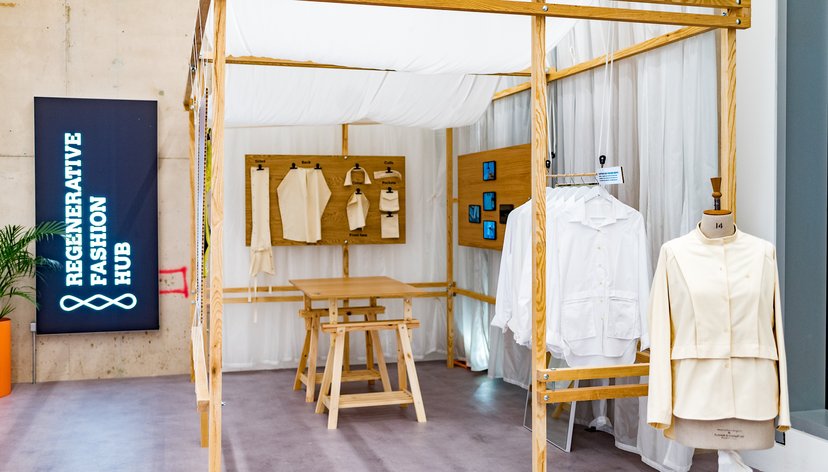Sustainability People & Governance
Jump to
Discover our vision for environmental sustainability, and find out about the people, policies and governance structure responsible for implementing it.
Environmental Sustainability Vision
We have a responsibility, through the RCA’s influence and activities, to ensure that we limit our draw on resources and have a positive impact on nature, people and the planet wherever possible in order to achieve net zero by 2035.
Through teaching, research, knowledge exchange and innovation, we will make global contributions to sustainability, climate change and the circular economy, which will be reflected in our own operational behaviours and decisions.
We are committed to guiding and supporting every member of our community so that they can contribute to the collective task of tackling the climate and biodiversity emergencies. And we recognise that changes in individual practices must be accompanied by structural, institutional change.
Governance
The RCA’s Environmental Sustainability Steering Group launched in 2022 and is tasked with developing the College’s sustainability strategy. The College has additionally established an Environmental Sustainability Committee, which first met in the 2023/24 Academic Year. The committee oversees the College's environmental performance and the sustainability strategy's development and implementation. Membership includes broad staff, trade union and student representation.
Meet the team
Staff across the College have responsibilities relating to sustainability. Staff working in dedicated sustainability roles include:
- Heather Akif, Chief Operating Officer & Paul Draper, Director of Estates & Campus Operations: members of the RCA’s Senior Management Team with specific responsibility for sustainability and the RCA’s environmental performance, overseen by the President and Vice-Chancellor. Contact: estates@rca.ac.uk
- Megan Jones, Environmental Sustainability Manager: develops and coordinates environmental sustainability activities and projects.
- Alexander Fleming, Deputy Director - Estate Management oversees the RCA's Integrated Facilities Management and Catering contracts, responsible for waste management. Contact: alexander.fleming@rca.ac.uk
- To find out more about environmental sustainability at the RCA, please contact Megan Jones.
Green Futures Group
The Green Futures Group is an informal cross-union collective established in 2022 by RCA academic staff to gather information and swap ideas on environmental sustainability throughout the RCA community. In the face of the climate crisis, it has become imperative to make profound changes to how we conduct our working practices. The group welcomes input from everyone: students, academic staff, union representatives, facilities and administration staff, estates and campus operations managers, external contractors, technicians, members of the RCA Senior Management Team, and local organisations.
The group meets several times a term and constantly collects and passes on information, identifies problems, canvasses for solutions, and connects people working towards the same goal across the RCA community. Green Futures Group members are also part of the RCA’s Environmental Sustainability Steering Group, working with the operations and communications teams on a coherent strategy that is inclusive and positively productive within the community.
There is also a rolling programme of Green Futures events and projects that promote awareness and good practice among students and staff: a termly repair café run by student and staff volunteers; regular clothes swaps facilitated with the Students’ Union; and a welcome week Green Futures Symposium, introducing new students to the theories and praxis necessary for an equitable transition to a decarbonised and sustainable society.


